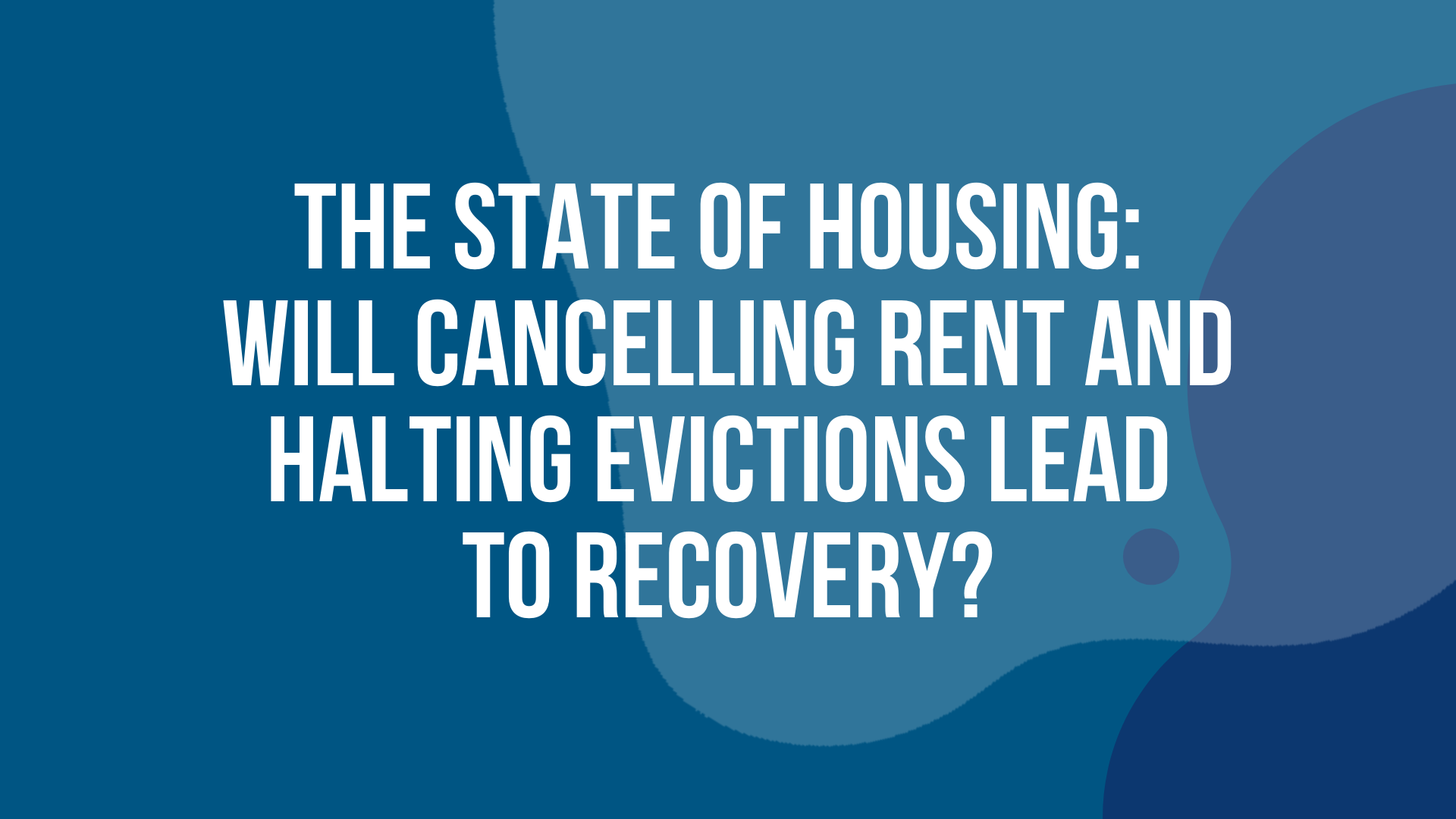Paid Leave, Livable Wage, Affordable Care: Policies that Could Avert the Next Crisis
Leading up to COVID-19, one in seven people in America were caring for children, adults, and elders. Today, the global pandemic has left many childcare providers and domestic workers without income, and it has also resulted in some having to make tough decisions about caring for others while putting their own health at risk. In short, the coronavirus has exposed just how fragile the financial security of care workers – disproportionately black and brown women – actually is.
In a typical year, it is estimated that US households lose $31.9 billion in wages due to a lack of child care, paid leave, disability leave, and care giving leave. If this invisible sector is the backbone of our economy – what are businesses and policymakers doing to build a better system? How can we re-imagine a world in which care is treated as a public good – because we all reap the benefits of better care for our children, our elderly, and people with disabilities.
This digital discussion tackled the questions:
- How do we quantify the benefits of paid leave, livable wage, and affordable care policies– not just for the workers they would benefit, but for the families they care for, and the economy as a whole?
- What are we seeing as feasible, short-term policy responses addressing the COVID-19 crisis – and how do we turn those into longer-term gains to build a better system of care giving across the U.S.?
- What would an inclusive, equitable care system look like in the United States? Whose responsibility is it to build it?
Attendees will also receive a copy of our latest brief, “The True Cost of Caregiving,” a new report explaining the costs to household financial security and the design principles for an affordable, quality, and equitable care system.
The Aspen Institute Financial Security Program’s work on dependent care is made possible with support from Citi.
Featured Speakers
 Shana Bartley
Shana Bartley
Director of Community Partnerships and Program Development for Income Security and Child Care/Early Learning, the National Women’s Law Center (NWLC)
Shana Bartley serves as Director of Community Partnerships and Program Development for Income Security and Child Care/Early Learning at the National Women’s Law Center (NWLC). In this role, Shana partners with community-based and grassroots leaders and NWLC staff to develop and advance cross-cutting policies and programs reflecting income security and child care/early learning priorities. She focuses on culture change, movement-building, and supporting the leadership of women of color and others whose needs often go unaddressed by existing systems.
Prior to joining NWLC, Shana held multiple roles in state-based advocacy in the District of Columbia. Most recently, she served as executive director at DC Action for Children where she led research and advocacy work on child care, maternal child health, and child welfare. She served on numerous advisory bodies, testified before the DC Council, and led multiple coalitions. In her prior role as a youth organizer and program coordinator at the Young Women’s Project, she supported teen women in their advocacy and activism for improved access to health education and services.
Shana holds a Bachelor of Arts in anthropology from Washington University in St. Louis and a Master of Science in Public Health from Johns Hopkins University.
 Dyvonne Body
Dyvonne Body
Program Associate, the Aspen Institute Financial Security Program
Dyvonne Body is a Program Associate at the Aspen Institute’s Financial Security Program (FSP), where she provides research and analysis on key financial challenges, and their impact on low-income and minority households. She also supports the Expanding Prosperity Impact Collaborative (EPIC) initiative on consumer debt. Prior to joining FSP, Dyvonne researched fiscal policy at the Georgia Governor’s Office of Planning and Budget and higher education policy at the U.S. Department of Education. Dyvonne holds a Master of Public Policy and Management degree from Carnegie Mellon’s Heinz School of Public Policy. She also has a bachelor’s degree in International Affairs from the Georgia Institute of Technology and is a Public Policy and International Affairs (PPIA) Fellow.
 Dominique Derbigny @DDerbigny
Dominique Derbigny @DDerbigny
Deputy Director, Closing the Women’s Wealth Gap
Dominique Derbigny works to identify and uplift policy and programmatic strategies to address the intersecting gender and racial wealth gaps. She is a macro social worker, writer, facilitator, and champion for race and gender justice.
Currently based in Atlanta, GA, Dominique has spent the past decade working in collaboration with nonprofit organizations across the country to create a more equitable society and economy. As Associate Director of Savings & Financial Capability at Prosperity Now, she provided training and capacity building support for dozens of workforce development and multi-service agencies to integrate financial capability and asset-building services into their programs, co-authored a guide for designing children’s savings account programs, and spearheaded race equity and inclusion efforts within the organization and her team’s strategy. As Program Director of MetroCASH, the Earned Income Tax Credit coalition serving Richmond Virginia, she expanded free tax preparation services to reach thousands of area residents, obtained public and private grant funding to support coalition efforts, and integrated financial capability services at tax sites.
In 2018, Dominique was selected to participate in the Rockwood Leadership Institute’s Art of Leadership for Black Women in Georgia. She has a MSW from the University of Maryland, Baltimore, and a BA in Human Services from Elon University. She also writes about political and economic issues facing Black women for the news media website BlackHer.
 Jamie Kalamarides @kalamarides
Jamie Kalamarides @kalamarides
President, Prudential Group Insurance, @Prudential
Jamie Kalamarides is president of Prudential Group Insurance, a business unit of Prudential Financial, Inc. (NYSE:PRU). Prudential Group Insurance manufactures and distributes a full range of group life, long- and short-term disability and corporate and trust-owned life insurance in the U.S. to institutional clients, professional associations and affinity groups, primarily for use within employee and membership benefit plans. The business also sells critical illness, accidental death and dismemberment and other ancillary coverages. In addition, the business provides plan administrative services in connection with its insurance coverages, and administrative services for employee paid and unpaid leave, including FMLA, ADA, and PFL.
Previously, Kalamarides served as head of Full Service Solutions and CEO of Prudential Bank & Trust, FSB, businesses within Prudential Retirement.
Jamie writes and speaks frequently on the role of employers in supporting employee Financial Wellness, the connection between #WorkandWealth, expanding retirement coverage for underserved workers and providing effective lifetime income solutions for all. Through consultation with Washington policymakers, in public forums and in collaboration with partners including Prosperity Now and The Aspen Institute, Kalamarides advocates for legislation that will broaden access to income protection and other financial planning solutions for traditional and independent workers. He is a sought-after thought leader by industry and consumer press including InsuranceNewsNet, Institutional Investor, Pensions & Investments, The Wall Street Journal, Bloomberg, and NBC News, and has spoken often at The Aspen Institute, AARP and U.S. Chamber of Commerce forums.
Kalamarides serves on the board of Prosperity Now, a national not-for-profit that creates economic opportunity to alleviate poverty. He is a graduate of Colgate University and earned an MBA with high distinction from the Amos Tuck School of Business Administration at Dartmouth College.
 Julie Kashen @JulieKashen
Julie Kashen @JulieKashen
Director of Women’s Economic Justice, The Century Foundation
Julie Kashen is a senior fellow and director for women’s economic justice at The Century Foundation, with expertise in work and family, caregiving, economic mobility, and labor.
Kashen has more than two decades of experience forwarding these issues in federal and state government and through the nonprofit sector, including helping to draft three major pieces of national legislation. As a labor policy advisor to the late Senator Edward M. Kennedy (D-MA), she helped draft and build momentum for the first paid sick days bill in Congress, the Healthy Families Act. As policy director of the three-year Make It Work campaign, she drafted a visionary child care proposal, whose principles were incorporated into the Child Care for Working Families Act. And as a senior advisor to the National Domestic Workers Alliance, she led the work to create and introduce the first ever national Domestic Workers Bill of Rights. In addition, as deputy director of policy for Senator Jon Corzine (D-NJ), she helped New Jersey become the second state in the nation to adopt paid family and medical leave. She is an active member of many child care, paid leave, and equal pay coalitions and tables. Kashen has been affiliated with The Century Foundation since 2015, and is excited to expand her role in 2020.
Kashen holds a master’s in public policy from Harvard University’s Kennedy School of Government and a bachelor’s with highest honors in political science from the University of Michigan. She was an adjunct lecturer on work and family issues and poverty in the United States at Rutgers, the state university of New Jersey.
 Ai-jen Poo @aijenpoo
Ai-jen Poo @aijenpoo
Executive Director, National Domestic Workers Alliance, @domesticworkers
Ai-jen Poo is an award-winning organizer, social innovator, author, and a leading voice in the women’s movement. She is the Executive Director of the National Domestic Workers Alliance, Director of Caring Across Generations, Co-Founder of SuperMajority and Trustee of the Ford Foundation. Ai-jen is a nationally recognized expert on elder and family care, the future of work, gender equality, immigration, narrative change, and grassroots organizing. She is the author of the celebrated book, The Age of Dignity: Preparing for the Elder Boom in a Changing America. Follow her at @aijenpoo.
She has been recognized among Fortune’s 50 World’s Greatest Leaders and Time’s 100 Most Influential People in the World, and she has been the recipient of countless awards, including a 2014 MacArthur “Genius” Award. Ai-jen has been a featured speaker at TEDWomen, Aspen Ideas Festival, Cannes Lions Festival of Creativity, Skoll World Forum, and the Obama Foundation Inaugural Summit. She has made TV appearances on Nightline, MSNBC, and Morning Joe, and her writing has been featured in The New York Times, The Washington Post, TIME, Maire Claire, Glamour, Cosmopolitan and CNN.com among others. Ai-jen has been an influential voice in the #MeToo movement and attended the 2018 Golden Globe Awards with Meryl Streep as part of the launch of #TimesUp.
In 12 short years, with the help of more than 70 local affiliate organizations and chapters and over 200,000 members, the National Domestic Workers Alliance has passed Domestic Worker Bills of Rights in 9 states and the city of Seattle, and brought over 2 million home care workers under minimum wage protections. In 2011, Ai-jen launched Caring Across Generations to unite American families in a campaign to achieve bold solutions to the nation’s crumbling care infrastructure. The campaign has catalyzed groundbreaking policy change in states including the nation’s first family caregiver benefit in Hawai’i, and the first long-term care social insurance fund in Washington State.
What you Need to Know
- The True Cost of Caregiving
- Overlooked and Undervalued: How Rising Dependent Care Costs Hinder Household Budgets
- Paid Family and Medical Leave: A Racial Justice Issue – and Opportunity
- Child Care is Key to Our Economic Recovery
- Domestic Workers Take Care of Us. Now, It’s Time for Us to Take Care of Them
Learn more
This event is part of the Conversations in Financial Security in Response to COVID-19: How to Triage, Recover, and Stabilize series, an ongoing digital event series hosted by the Aspen Institute Financial Security Program that works to triage the immediate effects of the current pandemic, design solutions allowing households to recover, and address the structural challenges to stabilize financial security at the household level.

